When Sanctions Are More Appalling than the Atrocities of Aleppo
Adelina Marini, October 31, 2016
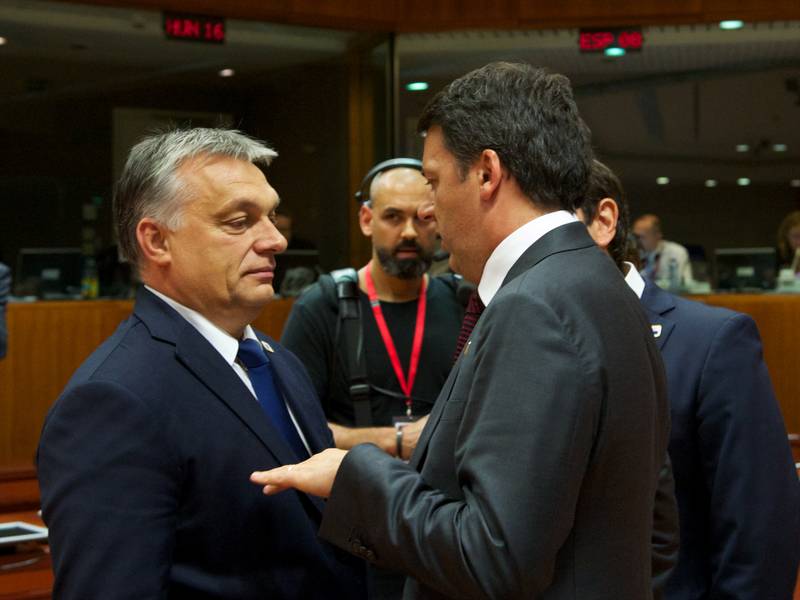
The war in Syria starts reminding more and more of the post-war situation at the beginning of the 20th century when the half-destroyed world matured to the need of global institutions, which could prevent armed conflicts through dialogue between warring parties and could take care of respecting human rights and international law. At the beginning of the 21st century this need is just as pressing, although we already do have such institutions. Thus the need to reaffirm the consensus that they really are the best solution that the world has. At the moment, Syria is in the epicentre of a clash between different global powers for influence in the Middle East. The site of Russia’s development of the new version of the 20-th century confrontation – Cold War 2.0.
The devastation of the Second World War laid the foundations of the European Union, which was awarded the Nobel Peace Prize in 2012. As euinside reported back then, it got it for the past, the present, and the future, for it was expected to enforce its modus vivendi every time that the threat of devastation appeared in its immediate neighbourhood and beyond. It is exactly in this most important role that the EU has failed last week, when it was expected that following an unprecedented sharp tone by the Union’s foreign ministers in denouncing what is happening in Aleppo and pointing the finger at the two culprits – the Syrian regime and Russia – leaders of member states were going to turn that tone into specific actions, which would lead to ending the bloodshed and war crimes there.
The very least the Union could do was implementing new sanctions towards Moscow. Something that many member states had matured to, who are otherwise critical towards the regime of sanctions against the Kremlin, including Bulgaria. A decision was never reached, however, largely due to Italian PM Matteo Renzi, who believes that sanctions will not solve the problem. Leaders did not waste words in condemning what is going on in Syria with some of them claiming it was their idea to have the discussion on the first day of the October EU summit. British PM Theresa May, who had this summit as her first since she stepped into office, stated prior to the summit start that there should be continued pressure over Russia to put an end to its “appalling atrocities, its sickening atrocities in Syria".
Bulgarian Prime Minister Boyko Borissov, too, held back no words and even stated that he supported new sanctions against Russia, despite the high price he is going to pay, due to Bulgaria’s energy fiefdom to Russia. “You know what, I have always said that sanctions are bad for business, the economy, agriculture, anything at all. There is, however, something more important than profits or business, or economic interest – that is human lives. Those are the values, which the EU and all of us respect. [...] In this case, what is happening in Aleppo is inadmissible. If sanctions are severe enough to bring everyone back at the negotiations table, then I would approve wholeheartedly. So, what is currently happening in Aleppo is inadmissible and needs to be stopped by Russia. With all due respect, I realise what I am causing myself, for we are in the middle of negotiations - you know the legacy we received in the energy sector - but more important than that are the values and we will protect them to the end”, he said before the start of the European Council.
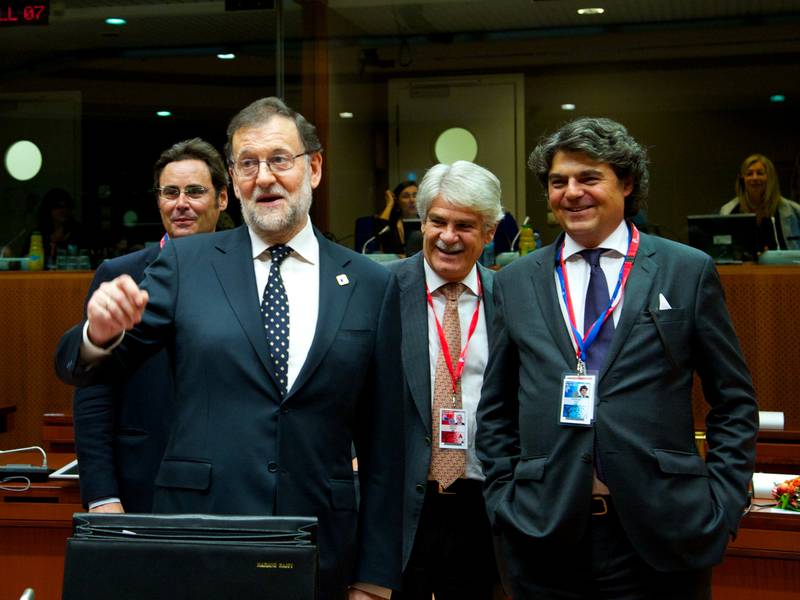
Irish Prime Minister Enda Kenny also directly advocated for sanctions against Russia. While leaders were gathering for a busy meeting, European Council President Donald Tusk (Poland, EPP) dropped the word “sanctions”, although there was no specific proposal tabled. “Today is not about decisions but I want to underline that the EU should keep all options open, including sanctions if their crimes continue”. Of a different opinion, however, was the High Representative of the European Union for Foreign Affairs and Security Policy Federica Mogherini (Italy, Socialists and Democrats), whose position sided with the one of the Italian prime minister. “The issue of sanctions on Russia, related to Syria, is not an issue for discussion or for decision today as it was not for the foreign ministers 3 days ago in Luxembourg [17 October]. Obviously all options are always open, but today work of the EU is focusing first on bringing humanitarian aid in Aleppo, saving lives and making sure that the diplomatic channel maintains the ceasefire as long as we manage to reach the wounded, the people that are dying on the ground and create political space for a solution of the crisis”, said Mrs Mogherini. .
A call for levying sanctions against Russia came from the European Parliament as well. On the initiative of the Liberals group a letter was sent, supported by the leader of the EPP group, Manfred Weber (Germany), and by the leader of the Greens and the European Free Alliance, Rebecca Harms (Germany), which calls for stricter sanctions. “The indiscriminate use of chemical weapons and barrel bombs against civilians in Aleppo must end. The EU needs concrete leverage to stop Russian war crimes in Syria and a tougher sanctions regime targeting Putin and his inner circle is the most efficient way to achieve this in the short term”, says the letter, initiated by the president of the Liberals group, Guy Verhofstadt (Belgium).
An accent on Syria and Russia was also placed by EP boss Martin Schulz (Socialists and Democrats, Germany), who also calls for sanctions. “In Syria as well as in Ukraine, Russia is the one maintaining the painful status quo. It is Russia which is challenging the global security architecture and the established principles of international law”. Using the fact that the subject of Russia in the meeting’s agenda was broad, not just about Syria, Martin Schulz reminded that when speaking about the relations between the EU and Russia one should not overlook the propagandists and President Putin's fans, populists on both sides of the ocean.
After a long and emotional discussion the European Council produced a text, which surely caused disappointment among those suffering in Syria, looked pathetic in the eyes of strategic allies of the EU, like the US and Canada, and probably caused smirking in the Kremlin and Damascus. The conclusions have several sentences dedicated on Syria, in which the Council denounces the attacks in Aleppo by the Syrian regime and its allies, “especially Russia” and calls them to end the atrocities and ensure humanitarian access. The Council also calls that all responsible for the violation of international humanitarian law and human rights be held accountable. And the threat at the end: “The EU is considering all available options, should the current atrocities continue”.
Neither the first, nor the second day made it clear how long will the EU continue to tolerate that, which it is so appalled by. And how much longer will it avoid the use of the word "sanctions" in its official documents, in which it denounces the crimes in Aleppo. At the press conference of the night of October 22nd, even the otherwise quite direct Donald Tusk did not mention the word “sanctions” in his statement, which was considerably softer than the one before the summit. German Chancellor Angela Merkel also avoided using the word, although she did admit that she was ready to back sanctions. François Hollande was cautious, stating that all options were at the table, but first of all sanctions need to be imposed on the Syrian regime.
The Irish prime minister announced that the discussion was quite emotional. It is quite clear that we are dealing with a violation of international law, he said and repeated several times that attacks on hospitals is a war crime. Differing from the rest of the leaders, Mr Kenny did not hide that it was Matteo Renzi who did not support the text of the draft conclusions. The debate over the few sentences was quite strong and emotional at times, he said. Many stressed that there are positions, which are simply inadmissible. Bombing hospitals, intentional bombing of humanitarian convoys, lack of protection for the lives of civilians are violations of international law, he stressed.
"It's perfectly clear now that the Assad regime has to depend upon air power from Russia and Iranian security and Iranian forces and Hezbollah for others. But it now has gone so far that from president Putin's point of view they have to maintain the Assad regime as an entity. Otherwise, Syria breaks up. This is very serious and is so sad in this day and age in 2016", added the Irish prime minister. Swedish Prime Minister Stefan Löfvenand and Foreign Affairs Minister Margot Wallström published a joint position on October 16, in which they state that Russia is responsible not only for its actions on the ground in Syria, but also because it has the strongest influence over the Syrian regime.
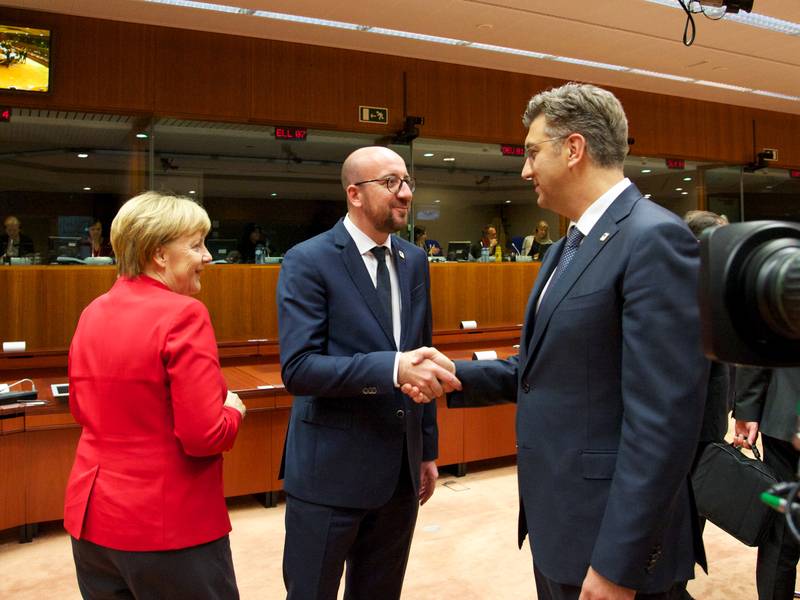
The leaders were sharply criticised during the debate in the European Parliament on Wednesday morning when the presidents of the European Council Donald Tusk and the European Commission Jean-Claude Juncker (Luxembourg, EPP) reported on the results of last week’s summit. The leader of the EPP group in the EP Manfred Weber (Germany) stated that with their decision leaders have practically accepted war as a legitimate tool for achieving goals. “The Council was supposed to give an answer to this, but this has been a very weak response. We have been discounting the possibility of instruments that we should use”, he said and added that the language of force is the only one that Putin understands. The boss of Socialists and Democrats, Gianni Pittella (Italy), noted that nothing was done on the Syria subject at the summit. “The silence of the European Council is deafening”, he concluded.
Not less critical was the leader of the group of European Conservatives and Reformists Syed Kamall (Great Britain). “Economic sanctions are beginning to have an effect on Russia – but not nearly enough. Yet, even at this point, leaders could not agree to go further. Now we see one EU country, Spain, offering to refuel that same Russian fleet that is likely to inflict more atrocities on the civilians of Aleppo. What kind of signal does that send about our resolve? We needed a summit of action, a summit of clarity, we needed a summit of decisiveness. Yet again, this is not what we got”, said the MEP.
According to Pavel Telička (Czech Republic, ALDE), the text about Russia surely made Russians laugh. “I guess even a few hours after the Council meeting we can see that we made a mistake, and that our policy does not work. It is costing lives and it is not getting us any closer to a solution”, stated Luděk Niedermayer (EPP, Czech Republic). At the end of the debate, President Tusk said that he supported during the meeting those who had the strongest positions on the role of Russia in Syria. He thanked Guy Verhofstadt, Manfred Weber, and Rebecca Harms for their letter. “It was a real support for me".
Russia – the destroyer of the EU?
Syria was not the only context discussed during the summit last week. The subject was raised of Russia’s role in the EU, the disinformation campaign, its interference in the Balkans. Croatian Prime Minister Andrej Plenković, for whom this summit was also a début, like for Theresa May, stated that Russia’s influence on countries in the Croatian neighbourhood is obvious in many aspects, varying from political-historic relations to economic and energy interests, connections with political parties, and even military cooperation. He is firmly convinced that the more the EU hesitates in its policy of enlargement, the greater the space being opened for Russia’s influence.
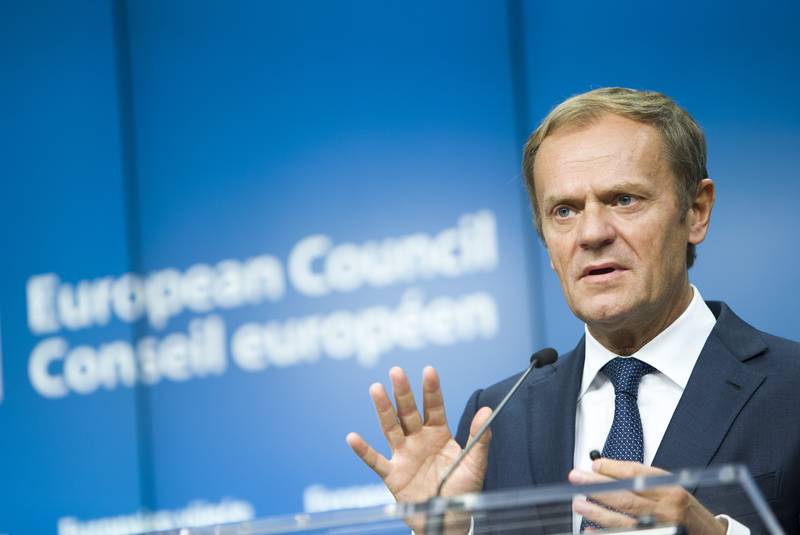
According to Donald Tusk, the “menu” of the discussion on Russia included also cyber-attacks, interference in the political process in the EU and elsewhere, violations of airspace and the investigation of the taking down of flight MH17, where dozens lost their lives. Tusk portrayed the discussion as “a sober assessment of this reality, and no illusions” and reminded MEPs that the purpose of the EU is not to quarrel with Russia, but to find a mechanism which works. This, however, could not be at the expense of European values and interests.
For the first time Russia appears as a standalone subject in the programme of a summit since 2009, when it was included in the leaders’ agenda because of the gas crisis of that same year. After that it has been discussed on several occasions in the context of the Union’s energy policy and following the annexation of Crimea. The October summit, however, was the first one during which there was talk about relations with Russia in principle. The goal was to draft all possible aspects, so that a more thorough discussion can be held in December about relations with this state. So far, however, it looks like the EU can just be soft and too soft at that towards an ever further radicalising Russia. Thus, the EU is betraying its principles and even the very motives for its formation.
Translated by Stanimir Stoev
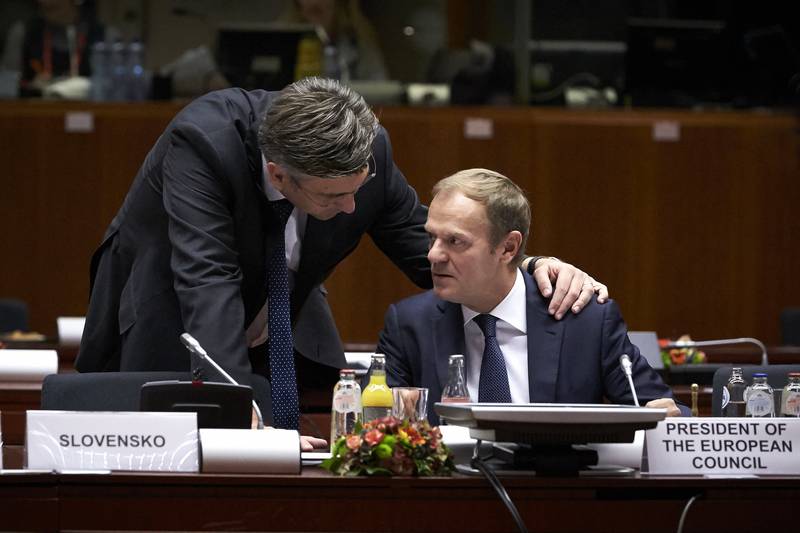 Andrej Plenkovic, Donald Tusk | © Council of the EU
Andrej Plenkovic, Donald Tusk | © Council of the EU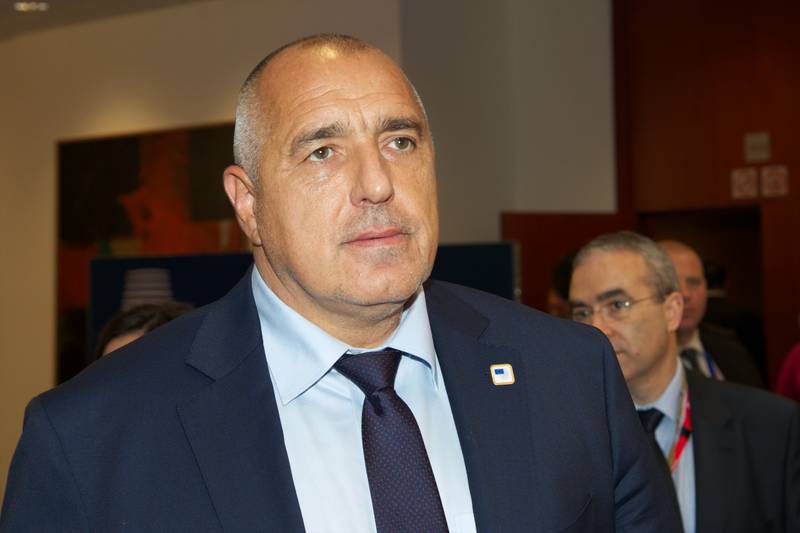 Boyko Borissov | © Council of the EU
Boyko Borissov | © Council of the EU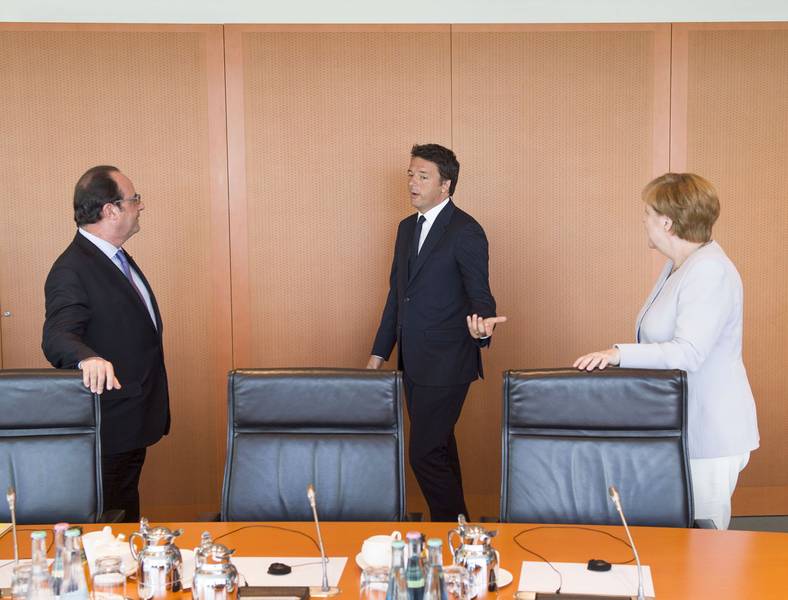 Hollande, Renzi, Merkel | © Council of the EU
Hollande, Renzi, Merkel | © Council of the EU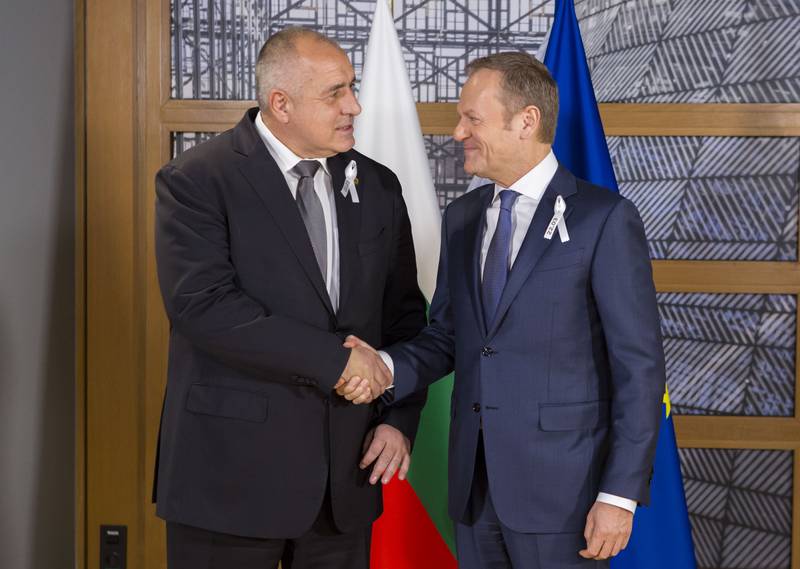 Boyko Borissov, Donald Tusk | © Council of the EU
Boyko Borissov, Donald Tusk | © Council of the EU Boris Johnson | © Council of the EU
Boris Johnson | © Council of the EU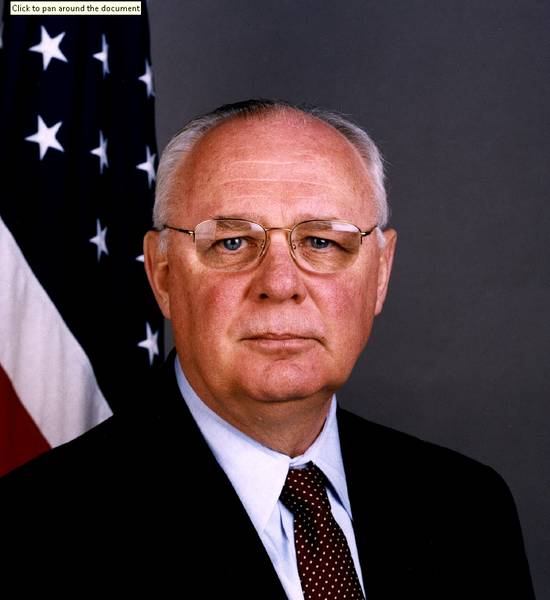 James W. Pardew | ©
James W. Pardew | ©